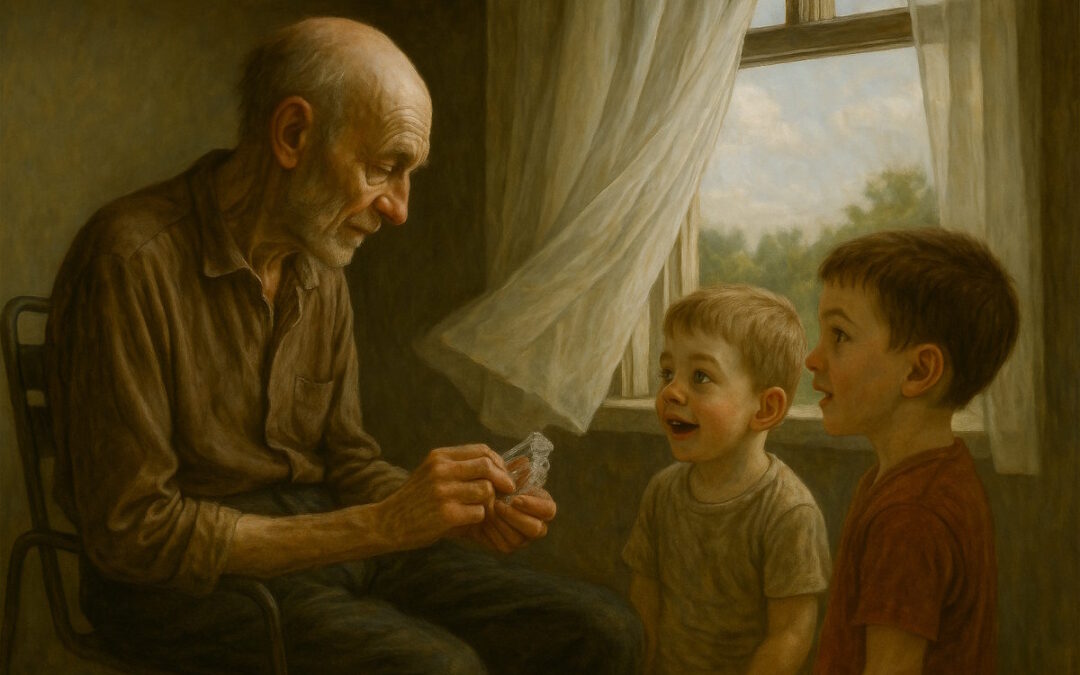A Tool of Memory
There’s a big, heavy old monkey wrench in my toolbox—rusted at the jaw, its handle darkened from years of use. We call it “Uncle Pete’s wrench.” It doesn’t get much action anymore. I keep that wrench not for its function, but for its memory.
When I was a kid, we simply called it the monkey wrench. It lived on a high shelf in the basement. When I got married, though, I gave it a new name—Uncle Pete’s wrench—because it reminded me of him: silent, solid, worn at the edges, but strong in a quiet kind of way.
Uncle Pete was my grandmother’s brother. When I was very young, he came to live with Grandma and Grandpa in their three bedroom home. I don’t know if Uncle Pete had a wife or children. Every Sunday afternoon, our family would go over for the day. While the grown-ups cooked and talked, and us kids ran in and out of rooms, Uncle Pete sat quietly in a steel rocking chair near the kitchen window. He didn’t speak. He barely moved and only stared out the window at an occasional passing car. But he was always there—rocking slowly, his eyes lost in some invisible horizon.
Crinkle of a Wrapper
One Sunday, my brother and I heard the crinkle of a wrapper from the other room and came tearing into the dining room. To us, it could only mean one thing: candy. We must’ve been three and four at the time, and candy was a pretty big deal.
But before we could reach the sound, Dad gently stopped us. “That’s not for you,” he said. “That’s medicine for Uncle Pete.” We stared at the shiny foil packet, a little confused. It didn’t make sense that something that sounded like candy wasn’t.
Then, one week, Uncle Pete wasn’t in the chair. No slow rocking. No silent presence. Just an empty seat by the window. We must have gone to the funeral, though I don’t remember the service. In my imagination, the funeral home was hushed and still. Uncle Pete lay there in a suit, in a polished wooden casket, just as silent as ever—but now, impossibly still.
I never learned what illness he had. Maybe it was physical. Maybe it was something else. I don’t know what he did for work. He might have been a mechanic of sorts, according to my dad’s recollection. To us kids, he was just part of the house—part of the quiet.
What Remains
Now, decades later, that wrench reminds me of him. Like Uncle Pete, it doesn’t say much. It just sits there, heavy and dependable, holding a space. And maybe that’s the lesson. As children, we thought old people just sat quietly and then disappeared. But they didn’t disappear. They leave things behind. Not just tools or furniture, but impressions—little truths stamped into our lives.
Uncle Pete remains a mystery to me – maybe one that will be cleared up by some sleuthing into our ancestry. But by being there—every Sunday, in that chair—he showed us that presence itself has value. Even the quiet ones have a story. We just have to learn how to listen.

